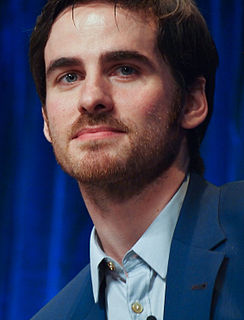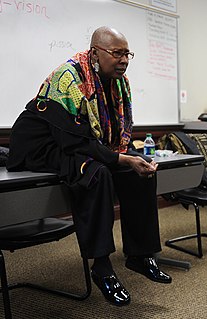A Quote by Robert Greene
In the normal flow of a conversation, our attention is divided. We hear parts of what other people are saying, in order to follow and keep the conversation going. At the same time, we're planning what we'll say next, some exciting story of our own.
Related Quotes
All the research shows that the presence of that phone will do two things to the conversation. It will make the conversation go to trivial matters, and it will decrease the amount of empathy that the two people in the conversation feel toward each other. That phone is a signal that either of us can put our attention elsewhere.
The show [Shots Fired] is an autopsy of our criminal justice system, a space where the conversation surrounding the issues in our country is offering a seat at the table to all the voices to be heard, a murder mystery, and grassroots look at our own humanity as we move through the parts and pieces of the story.
What you hear in focus groups and conversations, people will give you 20 minutes of rage about how the borders are out of control. But then you start saying, practically, what are we going to do about it? What are we going to do about the 11 million here? What are we going to do to get some workers we need for the farms? Then people start having a normal conversation.
This conversation with the audience has been going on since, what, '72, '73... Sometimes it's like a conversation after dinner with friends. You're in a restaurant, and you got there at 8 o'clock. Suddenly, you realize it's midnight. Where did the time go? You're enjoying the conversation. It's sort of a natural, organic conversation.
I am a partisan for conversation. To make room for it, I see some first, deliberate steps. At home, we can create sacred spaces: the kitchen, the dining room. We can make our cars 'device-free zones.' We can demonstrate the value of conversation to our children. And we can do the same thing at work.
There is a silence that matches our best possibilities when we have learned to listen to others. We can master the art of being quiet in order to be able to hear clearly what others are saying. . . . We need to cut off the garbled static of our own preoccupations to give to people who want our quiet attention.
I do not think stress is a legitimate topic of conversation, in public anyway. No one ever wants to hear how stressed out anyone else is, because most of the time everyone is stressed out. Going on and on in detail about how stressed out I am isn’t conversation. It’ll never lead anywhere. No one is going to say, “Wow, Mindy, you really have it especially bad. I have heard some stories of stress, but this just takes the cake.
'The Conversation' is one that, if you watch 'The Conversation' for the opening sequence, where you hear a conversation taking place as the master - this zoom from way up is zooming in over a park. And I was just absolutely blown away by it because you can hear exactly what's happening, but you don't see. You've got no idea who's talking.
The problem with listening, of course, is that we don't. There's too much noise going on in our heads, so we never hear anything. The inner conversation simply never stops. It can be our voice or whatever voices we want to supply, but it's a constant racket. In the same way we don't see, and in the same way we don't feel, we don't touch, we don't taste.
Unlike someone like Tom Hanks, or U2, the comics industry is not a thriving industry and we all need to keep and expand our audience. The best way to do that is to keep the fans we have happy and to keep them excited about our next projects so they'll keep following our work. The best way to do that is to continually engage them in conversation. I don't mean to sound flippant by any means. We're not being nice to our fans because we have to.






































